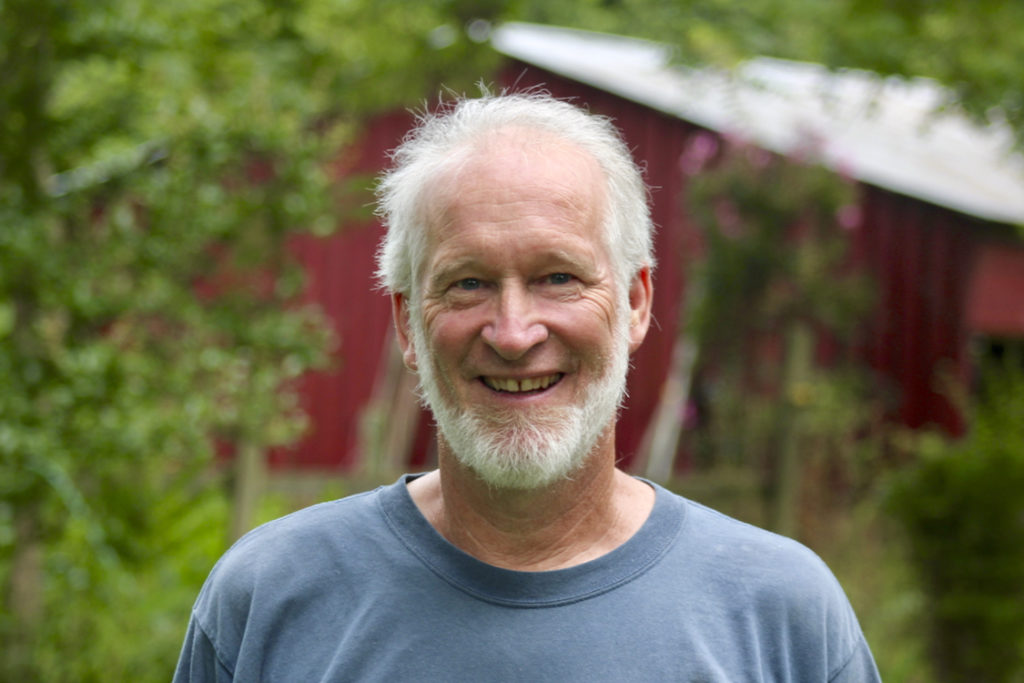
SIGMA — Please don’t call the soil “dirt.” Dirt is what you sweep off the kitchen floor. Soil is a glorious life-filled layer that sustains us.
Soil is, as the subtitle of a great book by William Bryant Logan calls it, “the ecstatic skin of the earth.” The main title of that book is Dirt, but we’re talking soil here.
So is “ecstatic” over the top on the adjectives?
Definitely not.
I am in a new phase of my relationship with soil. I am passionate about soil, realizing its vast importance, and I am enrolled in a class on soil microbiology. It is fascinating.
Understanding the complexity of soil is important for those of us who want to farm and garden in sustainable ways.
First a little science, but not too much.
My wife made me promise.
Soil is sand, silt and clay. It is made up of layers called “soil horizons.” The top two layers are possibly the most important. These are the layers we can make deeper for more soil health.
Soil has chemicals in it, though when in proper balance and organized by microbes they are not separate from the whole system. Most importantly, there is carbon and biology, such as bacteria, fungus and much more.
One little teaspoon of healthy soil has more microbes than the earth has people, according to the U.S. Department of Agriculture. And all life on the planet is completely dependent on microbes, including our bodies – especially our digestive systems.
The earth is 14 billion years old, plus or minus a few. So I have been told. And everything living developed from the early beginnings of microbes. You can’t talk about soil without talking about microbes. The sustainable farmer is one using this ‘pre-existing condition’ to promote health and vitality.
When you have a mature soil with a diverse web of biology in it, there is a complex symphony of interactions between the roots, the microbes and photosynthesis. Whole books are written on this topic alone. The plant then gets fed hour by hour exactly what it needs in exactly the right amounts. I call this miraculous biology.
I am currently partially through a soil microbiology course, and I am now the proud owner of a microscope. I feel a little daunted by it and very excited.
I will be able to see the ratios and types of microbes in my soil, compost and compost tea.
It is truly remarkable what is hidden from our view just under our feet. The foundation of soil is hidden, but, as with the foundation of a house, it is essential for the longevity and health of what is atop it. When using chemical fertilizers, only a portion is used by the plant while the rest can go into the water. There is evidence agricultural runoff contributes to the massive dead zone in the Gulf on Mexico.
To be clear: I have the utmost respect for anybody farming in any way. It is hard work with no guaranteed pay check, long hours and many unpredictable variables. Just as it is practiced now it has served us well as a nation, and we are practicing it is we have been taught.
It is becoming apparent that there’re hidden costs and collateral damage to our ecosystem – not to mention the sustainability of extractive practices.
There will be a payback time, and we will need all hands on deck to transition to a sustainable system. Farmers know so many different things which need to passed on while we switch to the new practices.
Yeah, I know a big assumption there that we will transition. There is a growing number of people who agree that the problem-solving capacity of healthy soils are very much needed and worth promoting. We can make soil healthy and strong while lessening the damage we do.
The techniques I promote and use are doable on any scale with some modifications. I repeat them often when speaking or writing. These include using well-made compost and compost tea, no till (the organic version) and turn in cover crops. Next adopt the doctor’s creed approach of “first do no harm.” Keep your biology alive as it does all your important work unseen and – though I hope this is changing – undervalued.
Soil is the planet’s layer of life which gives everything – all of our food, our oxygen, even our natural beauty. It is our most important resource. We need to take care of it.
Wilson, a farmer and consultant who lives in Sigma, writes about sustainable agriculture for The Independent News. Reach him via farmerjohnnewearth@yahoo.com.
© 2017 Pungo Publishing Co., LLC

